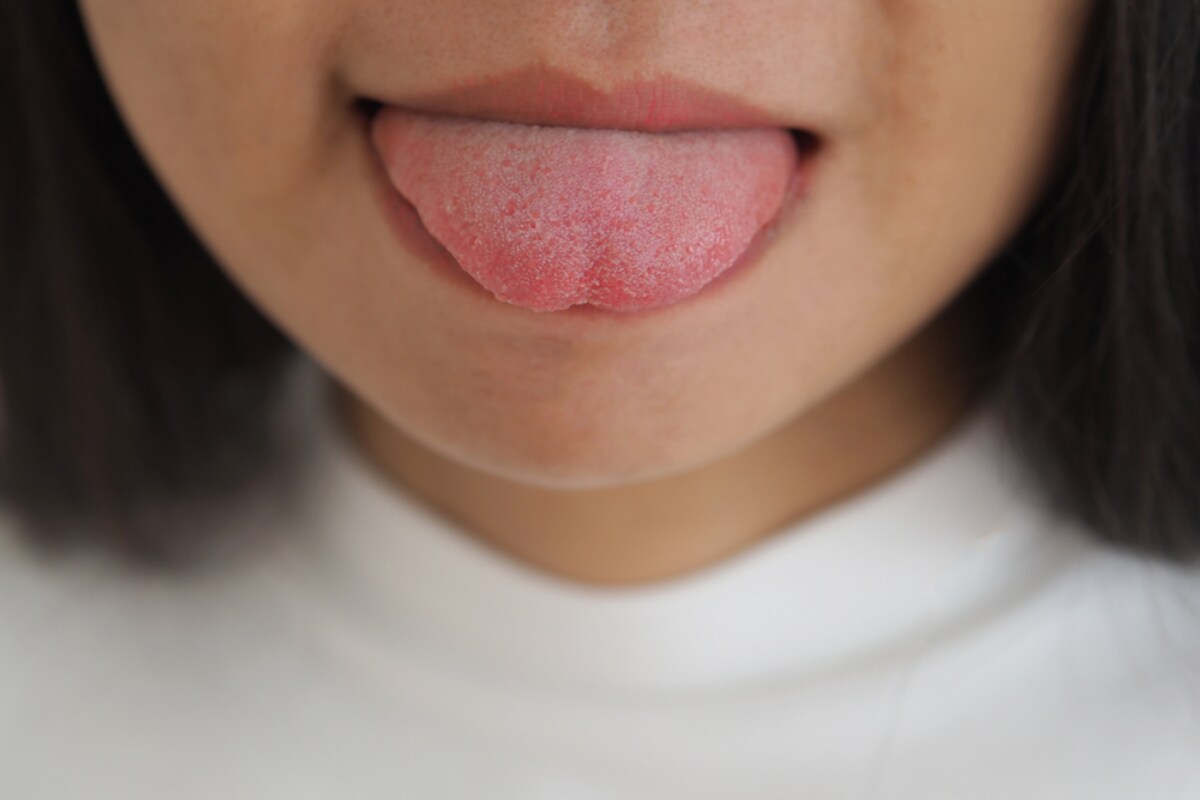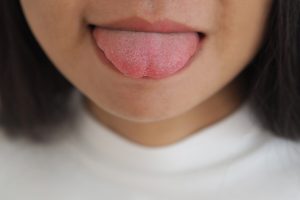A healthy mouth relies on saliva much more than most realize. Saliva helps keep the mouth moist, makes chewing and swallowing comfortable, and protects teeth from decay. When the mouth doesn’t produce enough saliva, a condition called xerostomia, or dry mouth, can develop. This creates a favorable environment for cavities to form. Recognizing the correlation between dry mouth and cavities is the first step to maintaining healthy oral health.
If you or your child suffers from chronic dry mouth, ask your dentist in Penhold for help determining the cause and what can be done to keep your mouth healthy.
Understanding Dry Mouth (Xerostomia)
A dry mouth occurs when there is a lack of saliva production in the salivary glands. This may contribute to a sticky mouth, difficulty speaking or swallowing, and an altered sense of taste with food. Beyond the discomfort, the effects of dry mouth can lead to some serious consequences if not properly managed for oral health.
Saliva has an important role in the mouth:
- Washing away food and bacteria
- Neutralizing harmful acids produced by plaque
- Strengthens enamel with minerals, such as calcium and phosphate.
Without saliva, teeth lose their natural defense against conditions that lead to xerostomia dental problems like cavities and gum disease.
Common Causes of Dry Mouth
Dry mouth is the result of a number of different causes that involve either a particular lifestyle or another medical cause. The following are some common causes of dry mouth:
- Medications: Antihistamines, antidepressants, and some medications for blood pressure can affect your saliva production.
- Health conditions/medical history: Diabetes, Sjögren’s syndrome, and autoimmune disease are often causes of dry mouth.
- Dehydration: Not getting enough fluid can lead to temporary changes in your mouth’s moistness
- Tobacco and alcohol use: Both of these can irritate your mouth and reduce saliva production.
- Aging: The natural aging process and medications can make an older person more susceptible to dry mouth.
If you are not sure of the cause of your dryness, visiting a dental clinic near you for an assessment can assist in identifying what caused your dry mouth.
Dry Mouth and Cavities
Saliva is a natural cleaning process in your mouth, and when you have less of this cleaning process happening, it becomes easier for the bacteria to stick to your teeth, thereby creating plaque and cavity issues.
But how does dry mouth cause more cavities?
- Neutralizing acid erosion: Saliva has the ability to neutralize acid from food and bacteria, but if there is not enough saliva, the acid will remain close to your teeth in a concentrated area for a longer period of time and therefore erode your enamel.
- Increased plaque buildup: A dry mouth produces a more bacteria-friendly environment. Without saliva present, bacteria are able to survive better, and thus your teeth are more susceptible to decay
- Thicker or increased food retention: Food particles can stay around your teeth longer, and these pieces feed the bacteria that contribute to tooth decay.
So, when we think about talking about oral health and dry mouth, moisture is important for comfort, but more importantly, it is there to protect your teeth.
How to Prevent Cavities with Dry Mouth
You can still keep the smile you want even if you have dry mouth. Here are some simple ways to prevent cavities with dry mouth:
Drink plenty of water: You will want to keep your mouth moist throughout the day, or rinse away the bacteria in your mouth, by drinking water.
Sugar-free gum: This stimulates saliva flow and helps to reduce acid.
Avoid caffeine and alcohol: As these substances can dry your mouth more.
Use saliva substitutes or mouth rinses: Over-the-counter supplements and fluoride rinses can provide protection to your enamel.
Practice Good Oral Hygiene:
- Start by brushing your teeth twice per day with a fluoride toothpaste.
- Floss daily.
- Get a dental checkup from a dentist on a regular basis.
Go to your dentist regularly:
If you have dry mouth and are prone to cavities, your dentist in Penhold may recommend professional solutions, such as prescription-strength toothpaste or fluoride treatment, to help prevent cavities and tooth decay.
When to See a Dentist
If dry mouth is a long-lasting issue for you or impacts your daily activities, it is time to see a professional. Examples of reasons to schedule an appointment at a dental clinic near you may include:
- Constant dry mouth that does not improve with hydration.
- Constant frequency of cavities along with bad breath.
- Sore throat along with cracked lips.
- Noticing the problem in chewing, swallowing, and speaking.
Visiting your dentist shortly after your dry mouth has started can help in identifying the reason for your dry mouth and in protecting your teeth before it becomes a serious problem.
Final Thoughts
While dry mouth may not seem like a big deal at first, without treatment, dry mouth can put a serious dent in your oral care. Understanding how acid from bacteria can contribute to the formation of cavities is essential to maintaining a healthy smile.
If dry mouth or frequent cavities are a part of your oral health, please contact our office at Penhold Dental Care to book an appointment. We would love to help you feel comfortable again and keep you smiling for the long run.
FAQs about Dry Mouth and Cavities
- Is cavity formation a concern when suffering from dry mouth?
Yes. Mouth dryness results in less saliva that aids in washing away food particle buildup and neutralizing acids in the mouth. Saliva is the great deterrent of bacteria, so if you have reduced saliva flow, you could incur bigger risks of cavity formation. - Is a dry mouth a possible sign of another health problem?
Sometimes. Dry mouth can be a fairly frequent symptom amongst people who have diabetes or individuals who have autoimmune diseases as well. A dentist or doctor can refer you for further diagnostics if you believe you may have some underlying health issue. - What can I do at home to help with dry mouth?
Drink plenty of water, chew sugar-free gum, and avoid all caffeine and alcohol products. A humidifier in your bedroom at night could help produce moisture levels in your mouth. - Will a fluoride toothpaste help me with a dry mouth?
Definitely. Fluoride will help strengthen your enamel, as well as offer an added layer of protection against decay for those individuals who may encounter dry mouth, as it will act as a barrier. - Can medications cause a dry mouth?
Yes, a variety of common medications, including antihistamines, antidepressants, and blood pressure medications, can slow saliva flow capacity. Please speak with your dentist if you notice this happening.










